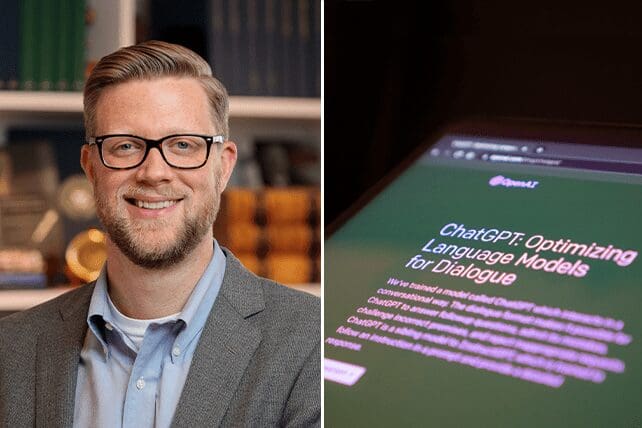ChatGPT, a chatbot powered by artificial intelligence, has caught the world’s attention because of its ability to produce sophisticated, even human-like, responses to user prompts, raising questions about how this technology can be used ethically and what its existence means for how Christians understand their own humanity.
Developed by OpenAI and released in November 2022, ChatGPT is the latest innovation in what is called generative AI. It has both garnered praise and raised concerns.
The technology of ChatGPT has the potential to upset the tech industry in ways we cannot yet even predict. It also represents potential dangers such as more advanced phishing schemes and cyberattacks, as well as questionable academic work.
This article is part of a series of interviews with Christian technology experts and ethicists who are grappling with the moral and ethical implications of the AI technology innovation ChatGPT represents. (View ChurchLeaders’ interview with bioethicist Dr. John Wyatt here.)
Dr. Jason Thacker is the chair of research in technology ethics and director of the research institute at The Southern Baptist Convention’s Ethics and Religious Liberty Commission (ERLC). He also serves as an adjunct instructor of philosophy, ethics, and worldview at Boyce College in Louisville, Kentucky.
Dr. Thacker is the author of several books including “Following Jesus in the Digital Age” and “The Age of AI: Artificial Intelligence and the Future of Humanity.” He served as project leader and lead drafter of the ERLC statement titled “Artificial Intelligence: An Evangelical Statement of Principles.”
Below are the questions we posed to Dr. Thacker and his responses.
What benefits does ChatGPT offer? What are its pitfalls?
As with most technologies, advanced AI systems like ChatGPT bring a host of benefits and pitfalls, given that technology is not just merely a tool we use but is something that is deeply shaping our perception of the world. It is easy to think that we simply use technology as a tool for good or bad, but in reality it is altering how we understand God, ourselves as human beings, and the world around us—including our neighbors.
While this particular tool is still relatively novel, we can already see how it can be useful in summarizing complex ideas, helping write various bits of copy, aiding us in complex tasks, and so much more. We have already seen professors seeking to incorporate it into their classrooms, dispelling certain myths about what these systems can do and also helping students to cultivate wisdom to navigate technologies like this in light of the Christian ethic rather than simply try to avoid them in vain.
Alongside the possible benefits, there are currently countless limitations and pitfalls with these systems that must be taken into account as one thinks through the ethical ramifications of their use.
RELATED: ERLC Issues Urgent Call to Biden Regarding Religious Liberty and Artificial Intelligence
Not only are they limited by the data sets and human supervision used in training the system, but these systems are widely known to falsify information, misapply concepts, or even alter their answers based on the political and social views of their creators. They rarely account for nuance and complexity, currently limited to producing at best entry level and/or basic material.

